As one of the three pillars of China-Eu relations, people-to-people and cultural exchanges play an important role in promoting political mutual trust and economic and trade exchanges. Effective interaction in such areas as education, culture, science and technology, youth and women is not only a physical vehicle for the dialogue between Chinese and European civilizations, but also an effective way to enhance mutual understanding and recognition between our peoples and promote the overall and all-round development of China-Eu and China-France relations. China has established high-level people-to-people exchange mechanisms with the EU, France, the UK and Germany, and promoted people-to-people exchanges between China and European countries through various forms of people-to-people exchanges and various channels.
As one of the research bases for China-Europe people-to-people exchanges under the supervision of the Department of International Affairs of the Ministry of Education, the Center for China-Eu People-To-People Exchanges at Renmin University of China has long been committed to the research of China-Eu high-level people-to-people exchanges, providing administrative advice and academic support for the establishment of mechanisms, the promotion of policies and the preparation of related activities.
On September 21, the first sub-forum of the China-Eu Civilisations Forum “China-Eu People-To-People Exchanges in the Post-COVID-19 Era” was held in Paris, France. The forum invited a total of 11 experts and scholars from China and Europe to exchange ideas, mechanisms, policy paths, achievements and issues related to China-Eu people-to-people and cultural exchanges, including higher education, cultural exchanges, language policies, visa policies, science and technology innovation cooperation and other topics. The forum was hosted by the China-Europe Center for People-to-people Exchange at Renmin University of China and moderated by Associate Professor Yan Jin, Executive Director of the Center.
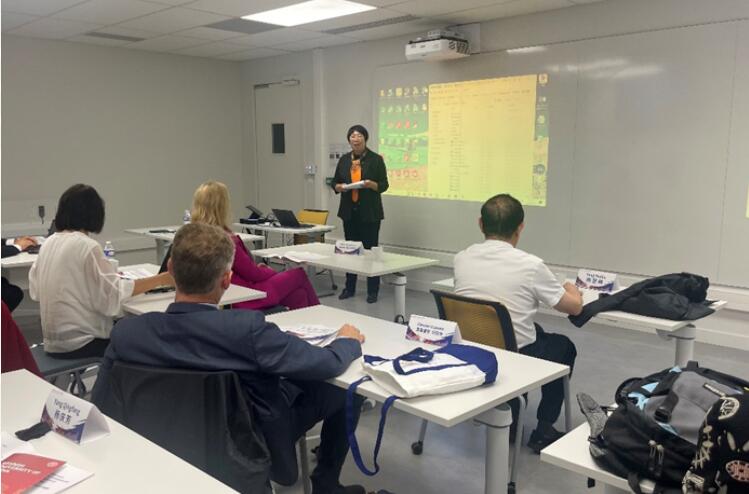
In her opening speech, Associate Professor Yan Jin said, “The epidemic has changed the basic way of traditional international interaction, and has also profoundly affected the scope, frequency and path of people-to-people exchanges between China and Europe. How to enhance people-to-people exchanges and thus promote political and economic cooperation in the post-COVID-19 era is an important issue of concern to both China and the EU. The discussion of this issue can not only effectively respond to core concerns at the policy level, but also enhance China-Eu academic dialogue and understanding at the practical level.”
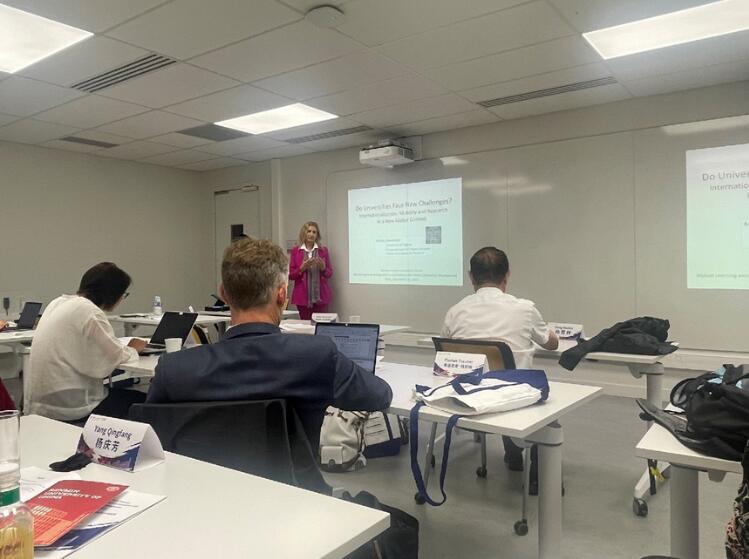
Professor Melita Kovacevic, former Vice-Chancellor of the University of Zagreb and Chair of the Committee on Doctoral Education of the European University Association, discussed the challenges facing higher education in the light of the current new situation of globalization and geopolitical development, by discussing the impact of the pandemic on the internationalization of European universities, the mobility of students and scholars, and research. To explore the institutional dilemmas and path dependence of China-Eu higher education and research cooperation, and to provide possible solutions on how to break through the impact of COVID-19 on China-Eu higher education exchanges.
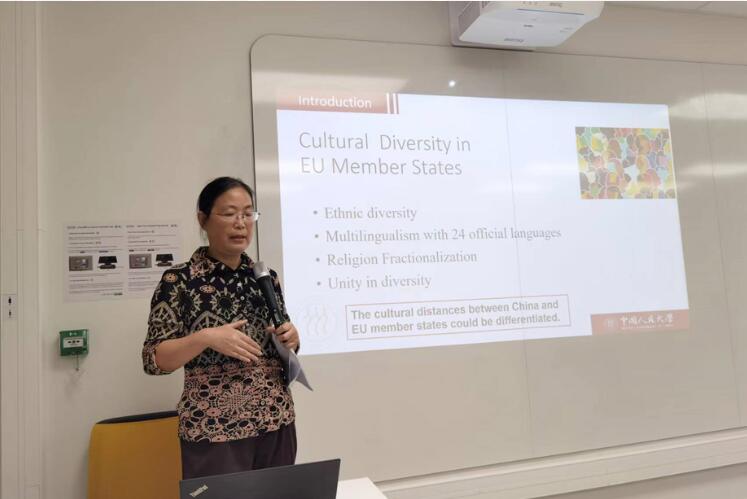
Professor Huang Yanfen of the School of Public Administration and Deputy Director of the China-Europe Cultural Exchange Research Center at Renmin University of China explains the impact of cultural identity on bilateral trade and economic cooperation between China and Europe from the theoretical perspective of “cultural distance”, and constructs empirical analysis of the negative impact of cultural differences on bilateral trade through Hofstede’s cultural dimension model and Dingbergen’s trade gravity model. To expend the significance of China-Eu people-to-people and intercultural exchanges for bilateral trade.

Florian Trauner, academic Dean of the Brussels School of Governance and EU “Jean Monnet” Chair Professor, compared and analyzed the cooperation and policy agenda setting in the field of visa issues between China and the EU before and after the epidemic, starting from the policy perspective of facilitating people-to-people and cultural exchanges between China and the EU. Based on the discussion on the changes of visa policies and the update of relevant provisions of Schengen Agreement member states towards China in the post-COVID-19 era, this paper expounds the core role of policies and visa facilitation measures in promoting people-to-people exchanges between China and Europe.
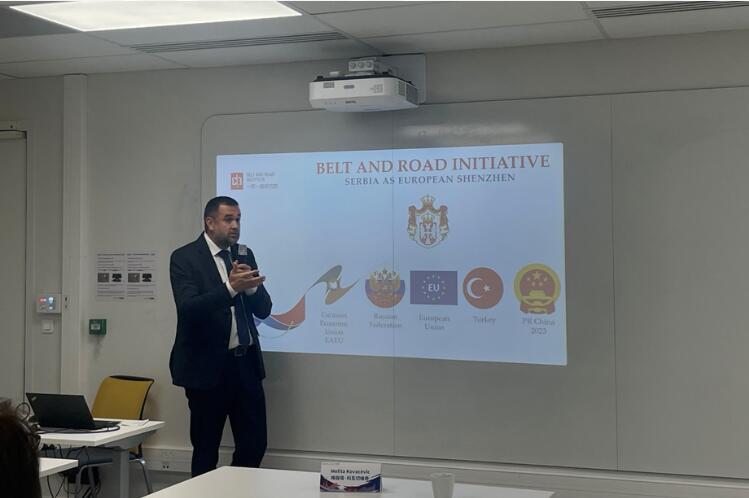
Prof. Bojan Lalik, President of the Belt and Road Research Institute in Belgrade, Serbia, introduced in detail the growth and development of bilateral trade cooperation, political mutual trust and people-to-people exchanges between China and Serbia since the Belt and Road Initiative was proposed ten years ago, citing the academic and teaching activities related to the Belt and Road Research Institute in Belgrade as examples. The role of think tanks in the process of people-to-people exchanges between China and Europe was discussed in the context of industrial interaction, think tank exchange, innovation, academic and cultural exchange.
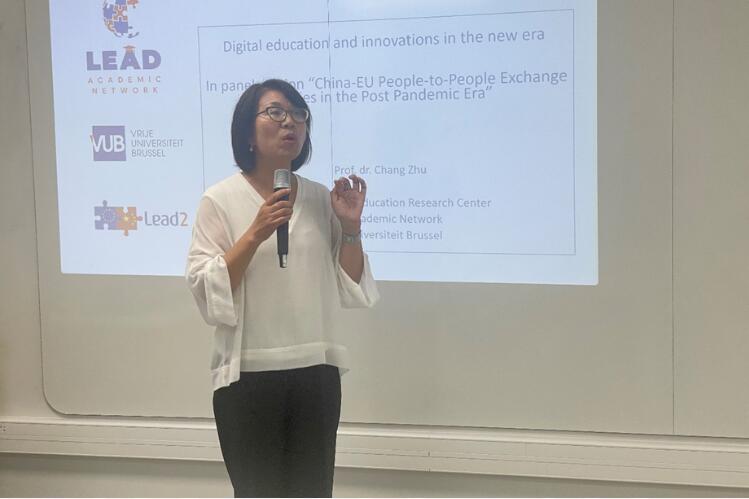
Prof. Chang ZHU, Director of the EU-China Centre for Higher Education Research (ECHE) and the Centre for Online and Blended Learning (ECHE), introduced the role of e-learning tools in promoting higher education exchanges and cooperation between China and Europe, based on the use of online education platforms for higher education in China and the EU during the COVID-19 pandemic. In particular, the positive impact of e-innovation, online and blended learning models and MOOCs on international academic mobility, academic leadership and EU-China academic cooperation is comprehensively analyzed.
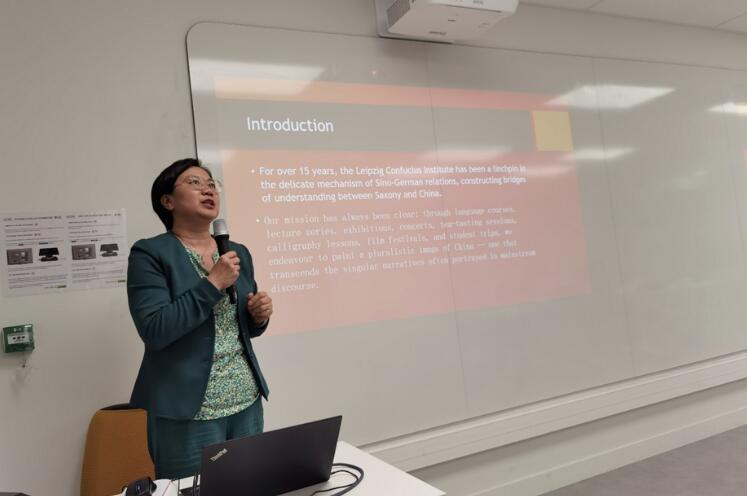
Associate Professor Yang Qingfang, Chinese Director of the Confucius Institute in Leipzig and School of Continuing Education at Renmin University of China, introduced the difficulties and challenges caused by the epidemic to the teaching of Chinese language and the dissemination of traditional Chinese culture at the Confucius Institute in Leipzig, Germany. To explore the role that Confucius Institutes can play during and after the epidemic in rebuilding China’s national image and increasing the enthusiasm of European people to learn Chinese and understand traditional Chinese culture.
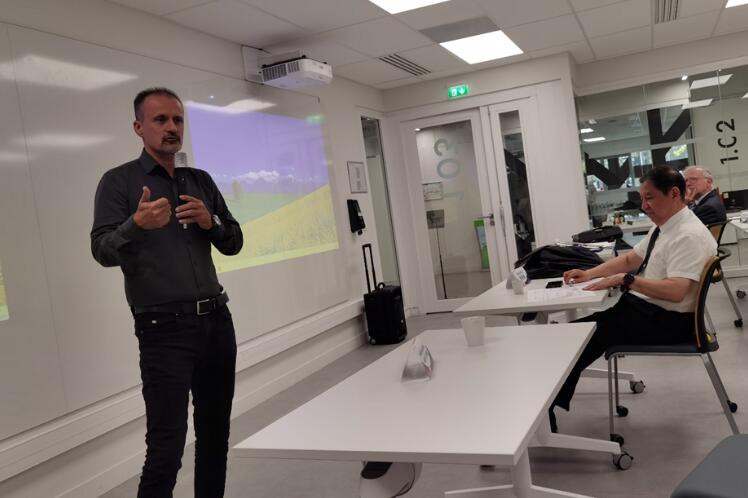
Professor Csaba Moldicz, Dean of the School of International Studies and Director of the Center for International Economics of Matthias Corvinus College in Hungary, discussed the influence and shaping role of Chinese investment in Europe under the framework of the Belt and Road Initiative on European people’s attitudes towards China, taking Chinese investment in Europe as an entry point. In-depth analysis of the two-way interaction between people-to-people exchanges and economic and trade cooperation, and taking the economic and trade exchanges between China and CEECs as an example to discuss the impact of CEECs on the overall China-Eu relations.

Professor Michel Espagne, Director of the CNRS Program at ECole Normale Superieure (ECole Normale Superieure), discussed the significance of the exchange of students and scholars between China and France in enhancing academic dialogue and mutual understanding, taking the project cooperation between Ecole Normale Superieure and Fudan University in the fields of literature, history and philosophy as an example. In particular, courses on Chinese history and culture in France and courses on French history and culture in China can help students understand, understand and recognize each other, and it is suggested that China-Eu cooperation and exchange programs in the field of humanities and social sciences should be appropriately expanded to strengthen people-to-people exchanges and enhance political mutual trust.

Prof. Yang Huilin, Director of the Center for China-Eu People-To-People and Cultural Exchange and the Center for European Studies at Renmin University of China, thanked the participating scholars and summarized the discussion at the forum, stressing in particular the importance of cross-disciplinary perspectives in the field of people-to-people and cultural exchange, strengthening and expanding existing exchanges and cooperation projects to enhance understanding between China and Europe. Promote sustainable political and economic development between the two sides.


